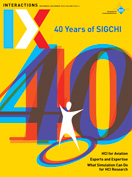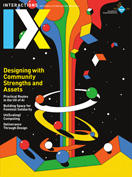Authors:
Posted: Wed, April 24, 2013 - 12:44:01
About a hundred years ago, I worked as a road manager. Often, when I tell folks this, they get all misty-eyed, somewhat dewy, and ask, "What was it like?" I think images of Scooter Herring run across their eyes, or strains of Jackson Browne's "Rosie" waft melodically in an Ohrwurm kind of way.
The first time I worked as a road manager was after I'd met the Bill Blue Band when they played an in-studio live concert. I bonded with the band, from their incendiary guitarists to their rocking rhythms and gypsy attitudes. We would pile into an unreliable Ford Econoline van on top of bass cabinets and road cases as we played from Baltimore's No Fish Today to Richmond's Hard Times to Raleigh's Pier to Atlanta's Blind Willie's and points in between.
Ten years later, I went on the road with blues guitarist Jimmy Thackery and his band the Assassins. While it was a higher-level band, the principles of the relationship between a road manager, the band, the venues, and the audiences remained the same.
Recently while working on a major project, I came up with this analogy: The UX team is the band, the client is the venue, and the users are the audience.
* The band's job is to create the base experience. They write the songs, they perform the music, and they create a show.
* The venue's job is to host an environment in which this experience can occur. They provide the space, the lights, the sound system (in most cases these days), the food, the booze, and the branding.
* The audience's job is to pay their money to the venue so the band can create the basic, core elements of the experience. The goals of the audience include participating in a social event (as opposed to simply listening to the band on their stereo), getting out, getting drunk, whatever...but it is the experience of being there that exists only because a band comes together, performs the music, in a hall the venue provides.
In all of this continuum, a road manager (also as tour manager or personal manager, depending on the level and structure of the band) enables this experience to occur seamlessly:
* The road manager makes sure the band gets to where they need to be, that they have the skills, attitude, and equipment they need, and that they're up to the task.
* Often, the road manager must ensure the band works well with the venue, guaranteeing the venue understands the needs of the band as well as the needs and expectations of the audience. David Lee Roth (yes, that David Lee Roth) detailed the story of Van Halen's "no brown M&Ms" policy from their rider. Their road manager was responsible for overseeing this seemingly excessive bit of rock & roll self-indulgence; yet by ensuring the venue read the contract closely, the band could worry less about whether the power was sufficient or the stage safe and instead concentrate on creating an experience for its fans.
A road manager is a person who understands the needs and skills of the band, who understands the goals of the venue, but who ultimately focuses efforts on ensuring the audience turns into swarms of loyal fans. That's why I love the movies Almost Famous and The Commitments; though ostensibly about the music, they show the importance of a manager on the road with a group.
By having a road manager, a band can concentrate on their craft, their art, their muse...and their performance. The road manager is at best a person who understands not just logistics but also politics, art, and experience.
What's needed in the UX world is that UX road manager: An experienced yet perspicacious practitioner who enables experiences to occur, shepherding the UX team with a studied, experienced, and enthusiastic hand. I see this person as someone who's done the craft of the UX band but who sees herself as wanting to orchestrate even more.
The title can change, evolve, and morph. User experience architect, UX strategist, chief UX evangelist, whatever…as long as it's a passionate person who cares about the experience being the best it can be, with the milieu of band/venue/audience that it can be.
Somehow, someone needs to balance the needs of the UX team (who want to do a great job), the client (who wants to meet their business goals), and the user (who wants to get stuff done, accomplish something, or feel something). Where possible, having a UX road manager can make the difference… and truly make the band on stage.
Posted in: on Wed, April 24, 2013 - 12:44:01





Post Comment
No Comments Found